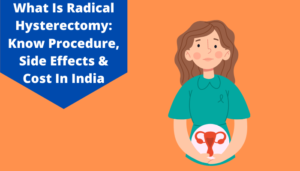Buy Critical Illness Health Insurance Online Policy
Critical Illness Health Insurance
Critical illnesses require special and advanced treatments. Comprehensive health insurance plans do not cover critical conditions. Most people tend to assume that their general health insurance plan would be enough to provide coverage for the treatment of critical illnesses. However, that is not the case.The last few decades have seen a steady and steep rise in cases of critical illnesses in India. Diseases such as diabetes, cancer, kidney ailments, and cardiovascular illnesses have increased drastically. Medical science too has seen advancement, which has led to cost escalation of critical illness treatments. Specifically, technology-based treatments have increased cost of treatments.The health insurance industry has addressed the rising critical illness cases with customized critical illness insurance plans. Critical illness cover offers protection against the high expenses of medical treatments. Today, most of the health insurance companies in India offer different options for critical illness insurance. This has brought respite to policyholders and their families from financial stress that comes along with serious illnesses. Given the high probability and widespread incidents of critical ailments, everyone needs to be aware of critical illness insurance, its benefits and procedures to reap the full benefits.
What is critical illness insurance?
Critical insurance plans are specially designed to offer financial coverage against the treatment of critical illnesses. Health insurers in India have a specified list of diseases recognized and included in critical illness policies – cancer, diabetes, cardiovascular diseases, hypertension, kidney failure and paralysis.Most of the critical insurance plans, typically, have a high insurance premium. The sum insured is paid in lump-sum upon the diagnosis of the illness. It is essential to understand the key features of critical illness policies as the clauses might differ from those of comprehensive and general insurance plans.
Features and benefits of critical insurance plans
Critical illness coverage:
Critical illnesses require special and advanced treatments. They are serious illnesses that can be threatening to life. As the treatments are advanced, the cost of such treatments is usually high. Moreover, larger hospitals in cities add to the costs due to high administrative and realty costs. Critical illness health insurance plans provide coverage for such steep treatment costs. Critical illnesses are not covered under other comprehensive health plans.
Lump-sum payment:
Critical illness insurance plans pay lump-sum assured upon the diagnosis of the illness. As the treatment expenses for critical illness are high, insurers pay the sum insured in full. This is beneficial to policyholders to meet the high costs of treatments. It also relieves the policyholder and their families from financial stress.
Premium: The premium of critical illness plans is usually on the higher end as the risks of life, and high expenditures are higher in the case of these ailments. Moreover, most policyholders prefer to buy a policy with a high sum insured, which has a higher premium.
Day care procedures:
Day care procedures are those that do not require the patient to get admitted to the hospital and are done within 24 hours. Critical health plans offer coverage for day-care procedure expenses.
Flexibility:
Policyholders with critical illness are risky for the insurer, and hence insurers are cautious when underwriting these plans. These plans usually have lesser flexibility for add-ons compared to general comprehensive insurance plans. These plans do not cover medical expenses arising out of other health issues that are not related to the critical illness.
Easy claim process:
Critical illness policies have an easy claim process. Most health insurers follow a standard claim process upon which the insurance company pays a lump sum amount to the policyholder.
Waiting period:
Usually, critical illness insurance plans have a waiting period of three months or more. The plans also have a waiting period for pre-existing diseases, which is around three to four years, depending on the clause in the policy.
Why should one buy critical illness health insurance?
Provides financial support
Critical illnesses can cause financial stress to a family as the treatment expenses are high. Some families that do not have enough savings or critical illness health insurance policy might need to borrow money and face the risks of getting into a debt trap. Having a critical illness health insurance plan ensures financial support to the policyholder and their family that can be used for the treatment or to pay debts or cover for the loss of income due to illness.
Reduces mental stress
Critical illnesses can be quite stressful for the patient and their families as it requires a lot of special care and medical treatments. Finding a doctor, a good hospital, quality treatment, affordable medical and nursing options and financial worries can lead to stress and anxiety. Having a critical health insurance policy can reduce a lot of these stresses. The policyholder can receive timely, quality treatment at network hospitals without having to worry about the treatment costs.
Coverage of many critical illnesses
Under critical illness health insurance, policyholders can avail of complete treatment of different critical illnesses. Most critical illness insurance plans provide coverage for a range of critical illnesses.
Tax benefits
The premium paid towards critical illness health policies is eligible for tax benefits under Section 80D of the Income Tax Act. While policyholders under the age of 60 can avail of up to Rs 25,000 tax benefits, senior citizens can avail of up to Rs 50,000 deductions.
Critical illness health insurance inclusions and exclusions
Inclusions
- Cancer
- Cardiac arrest
- Cardiovascular diseases
- Kidney failure
- Lung ailments
- Meningitis
- Permanent paralysis
- Organ transplant
Exclusions
- Self-inflicted injury
- Use of alcohol or drugs
- HIV infection
- Cosmetic and aesthetic treatment
- Congenital diseases
- Treatments outside India might be excluded
How to select a good critical illness insurance plan?
Coverage:
When buying a critical illness health insurance plan, it’s essential to choose one that provides maximum coverage. One must take into consideration the number of illnesses covered in a plan as different insurers offer coverage for a different number of diseases. Hence, more the number of illnesses covered; the better it is for the policyholder.
Built-in extra coverage options:
Many health insurance companies provide the option of built-in coverage. It includes coverage such as personal accidents, child education benefit, free health check-up etc. It should be noted that built-in coverage might add to the premium amount of the critical illness insurance policy. Hence, if opting for this feature, one must make the necessary premium calculations before buying the policy.
Pre-existing diseases:
It is essential to check the pre-existing diseases clause in the critical illness insurance policy. While some plans provide coverage for all or some pre-existing conditions after a waiting period, some plans might not cover pre-existing ailments at all.
Waiting period:
Most health insurance plans have a waiting period. Critical illness health insurance plans also have a waiting period that ranges from a few months to a few years. It is advisable to buy a plan that has a shorter waiting period. Many critical illness policies have a waiting period of three to four years. This can be quite a long wait.
Free-look:
Many insurance companies provide the free-look option, which allows the buyer to cancel the policy within 15 days, if not happy with the policy. Suppose the policyholder cancels the policy within 15 days of purchasing it. In that case, they are eligible for a refund in full or part, depending on the pre-specified terms mentioned in the critical illness insurance policy.
Tax benefit:
Policyholders with critical illness insurance policies are eligible to avail of income tax benefits under Section 80D of the Income Tax Act. While those under the age of 60 years can claim tax benefits of up to Rs 25,000, senior citizens are eligible to claim tax benefits of up to Rs 50,000. It is essential to check if the policy is eligible for tax benefits under Section 80D of the Income Tax Act.
Claim settlement ratio:
Claim settlement ratio is the number of claims that the insurance company has paid as against the number of claims that were made to the company in a year. By knowing the claim settlement ratio of an insurance company, one can understand the insurer’s capacity and willingness to settle claims with reliability. Typically, a claim settlement ratio of over 90% is said to be reliable and acceptable. It is crucial to know the claim settlement ratio history of the insurer when buying critical illness insurance.
Sum assured:
The treatment for critical illnesses could be expensive. Moreover, such diseases might lead to a loss of income due to the inability of the policyholder to work. That is why it is essential to buy a critical illness insurance plan that offers a high sum insured or, at least, the desired sum assured. All health insurers do not provide plans of the desired sum insured and have options that might be limited to the needs of insurance seekers.
What is critical illness insurance?
Different types of health insurance plans offer different types of covers. That’s one of the key reasons for people to buy multiple health insurance plans. E.g., a person has a comprehensive health insurance plan worth Rs 10 lakh sum insured. However, the plan does not provide coverage for any critical insurance. Realizing this limitation of the policy, the policyholder buys a new health plan – a critical illness insurance plan that offers coverage for 15 critical illnesses.
If this person gets hospitalized due to any illness, e.g. a viral infection and disease, the comprehensive health plan will cover the expenses. However, if the person is diagnosed with a critical illness that’s included in the policy, the critical illness plan will come to rescue by paying a lump-sum insured.
There are many differences between critical illness health insurance and comprehensive general health insurance. Here are the differences.
Health Insurance Plans that cover Coronavirus
Critical Illness Insurance
General Health Insurance
Definition
Coverage
Waiting period
Payment of claims
Critical illness plans in India
Plan
Features
Aditya Birla Critical Illness Health Insurance Policy
Max Bupa CritiCare
Bharti AXA Critical Illness Health Insurance Plan
Future Generali Health Insurance
Types of illness covered by critical illness insurance plans
- Cancer
- Heart ailments
- Stroke
- Kidney failure and ailments
- Organ transplant
- Permanent paralysis
- Debilitating neuron diseases
- Diabetes
- Multiple sclerosis
- Loss of speech
- Lung diseases
- Muscular dystrophy
- Deafness
Who should buy a critical illness insurance plan?
- Those who have a history of critical and chronic illnesses in their family must opt for critical illness insurance early on as it would come at a cheaper premium price.
- Those who lead unhealthy lifestyles, high-pressure jobs, and sedentary lifestyles and have poor eating and exercise habits should opt for critical illness insurance as it gives financial security and peace of mind.
- Those who have elderly family members with chronic or critical illnesses must buy critical insurance plans for their family members, as it will reduce financial burdens off their shoulders.
- People over the age of 40 must have critical illness covers. Ageing increases the chances of critical illnesses. People over the age of 40 years must buy critical illness health plans as a safety measure for future healthcare.
Factors to consider when opting for a critical illness policy
Sum assured:
Treatments for critical illnesses can create a massive hole in one’s pocket. A critical illness insurance plan with an adequate sum insured can create a safety net for the policyholder. Many insurance companies have a limitation to the sum assured amount hence it is essential to consider all factors relating to the sum insured while choosing a critical illness insurance plan.
Standalone critical illness insurance or rider:
Many health insurance companies offer the option of adding critical illness to the existing comprehensive health insurance plans as a rider. This comes at an added premium. It is essential to make a well though through choice when planning to buy critical illness cover.
Sub-limits:
Many critical illness plans include sub-limit clauses. Sub-limits are limits to claim towards some types of expenses. Sub-limits might lead to high out-of-pocket expenditures by the policyholder.
Inclusions and exclusions:
Every critical illness insurance plan has a set of inclusions and exclusions. It is vital to have a thorough understanding of these clauses to avoid any surprises at the time of claims.
Age:
Age is a critical factor when buying any health insurance, including critical illness plan. Ageing leads to a higher probability of diseases and hospitalization. Critical illnesses are more common among people of a higher age group; hence the premium for their insurance policy is usually higher.
Maximum renewal age:
The renewal age clause of insurance policies is different. It is essential to understand the renewal clause of a plan before making a purchase.
Waiting period:
Usually, critical illness health insurance plans have a waiting period. It may vary from a few months to a few years. It is advisable to choose critical illness insurance with a lesser waiting period to make it more useful in the near future, should the policyholder be diagnosed with a critical illness.
How to file a claim for critical illness policy?
A policyholder can initiate a claim towards a critical illness insurance plan with the help of the following documents.
- A claim form, duly filled and signed by the policyholder
- Medical and doctor’s certificate confirming diagnosis of critical illness
- Related supporting documents from the hospital
- The first doctor consultation letter and prescriptions
- The documents listed in the critical illness insurance policy
How to calculate critical illness health insurance premium?
There are a number of factors that determine the final premium figure that insurers quote to critical illness health insurance seekers. Apart from each insurance company’s clauses and guidelines, factors such as the type of plan, age of the applicant, health condition and medical history are considered in determining the premium amount. Here are some factors explained.
Age of the insurance seeker
One of the key factors that impacts the premium amount is the age of the policyholder. Typically, older the person, the higher will be the premium amount. The reason for this is quite simple. Age brings health complications and hence a greater need for health insurance and claims.
Personal and family medical history
Critical illnesses can be quite stressful for the patient and their families as it requires a lot of special care and medical treatments. Finding a doctor, a good hospital, quality treatment, affordable medical and nursing options and financial worries can lead to stress and anxiety. Having a critical health insurance policy can reduce a lot of these stresses. The policyholder can receive timely, quality treatment at network hospitals without having to worry about the treatment costs.
Sum insured
It is but obvious that the more the sum insured, the higher would be the amount of premium, and the lesser the sum insured, the lower the premium amount. Critical illness insurance typically offers a higher sum insured. By providing health insurance policies, insurers take a risk for the policyholder. Now if the sum insured is higher, the insurer would charge a higher premium towards the sum insured.
Online health insurance premium calculator – key steps
- Search for your choice of health insurance company’s website
- Most insurance companies have an online premium calculator on their website
- Find the calculator and fill in the details as required
- Select the option according to your requirement – type of plan, number of members, age and sum insured, etc.
- Share your contact details
- Click on calculate the premium
- The insurance company will share the premium amount on your contact details, which can be by SMS or email.
Types of Best Health Insurance Plans in India
FAQ
Q. Why should I buy critical illness health insurance?
A. Critical illness insurance helps policyholders meet the high expenses of treatments of critical illnesses as well as deal with the loss of income due to critical condition; apart from other relevant financial needs.
Q. Who should buy a critical illness insurance plan?
A. Those over the age of 40, people who have a high-pressure job and follow unhealthy lifestyles must buy critical illness insurance. Those people who do not have enough savings or financial backing from their family must also purchase a critical illness health plan.
Q. How much coverage does critical illness insurance provide?
A. The amount of coverage that a critical illness insurance plan offers depends on the insurance company and the requirement of the policyholder. Different companies have different options for sum insured starting from a few lakhs to a few crores.
Q. What are the diseases included in critical illness insurance?
A. Most critical illness health plans include these diseases: cancer, cardiac arrest, cardiovascular diseases, kidney failure, lung ailment, meningitis, permanent paralysis, and organ transplant, among others.
Q. What is the ideal sum insured of critical illness health plan?
A. The ideal sum insured of critical illness health plans depends on the need of the individual policyholder. There is no one-size-fits-all approach to the sum insured requirement.
Q. What is the renewal age of critical illness insurance plans?
A. The renewal age of critical illness plans depends on the clauses in the policy chosen. It can differ from insurer to insurer and even from one plan to another.











